Advertisement
Commentary
We were together in the twilight of his life. And that was enough
Resume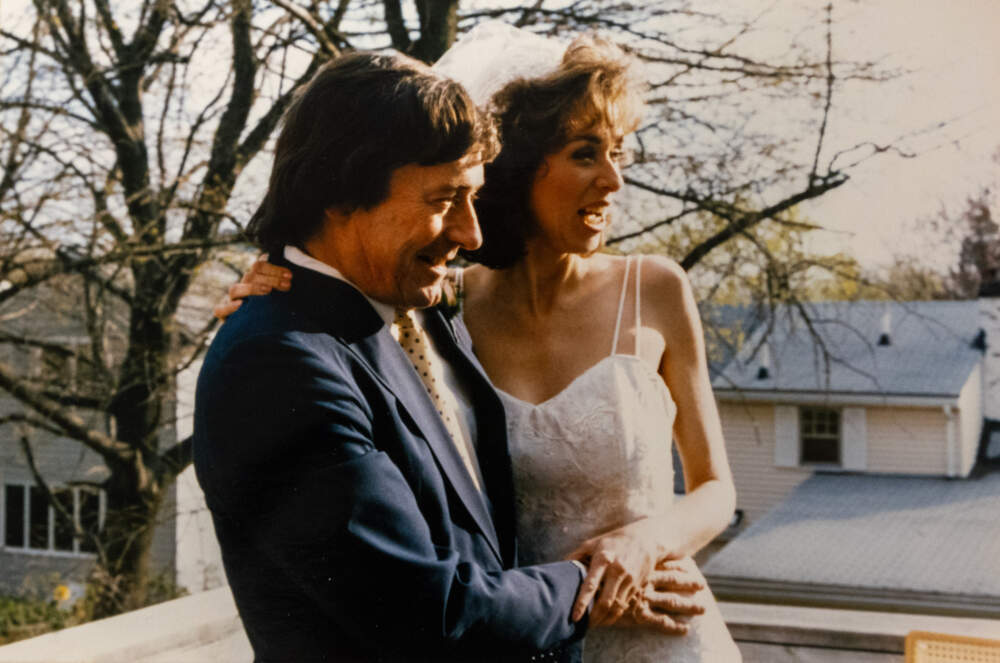
Editor's note: One year ago this fall, long-time Boston Globe journalist Jack Thomas died. Thomas had been diagnosed with terminal cancer in 2021. After being told he likely only had months to live, Thomas wrote an essay for the Globe considering the end of his life. WBUR's ideas and opinion team worked with Jack to adapt that piece for radio. Today we're publishing its companion essay by Geri Denterlein, Thomas's wife of 32 years.
Within the horticultural splendor of Mount Auburn Cemetery in Cambridge, Mass., poets and philosophers are buried.
So, too, is my husband.
When Jack was diagnosed with a terminal illness, he sat down at his computer to write a story.
Though he’d been a journalist for more than 60 years, writing didn’t come easily. He often quoted Dorothy Parker, “I hate writing. I love having written.”
Jack was a perfectionist: Each sentence had to be elegantly constructed, each word true to its primary meaning. He was notorious for stretching deadlines throughout his career, yet his final published piece was done in record time, because time itself was short. His primary care doctor suggested he had as little as three weeks to live.
Once Jack began cancer treatments, however, it seemed as though we were being given a reprieve from the dire diagnosis. Weeks in chemotherapy turned into months and we began hoping for another year, maybe two, maybe even three. So buoyed by the news from his oncology nurse that the cancer was “indolent,” we thought he might beat the odds and live well beyond the average for as dire a diagnosis as his.
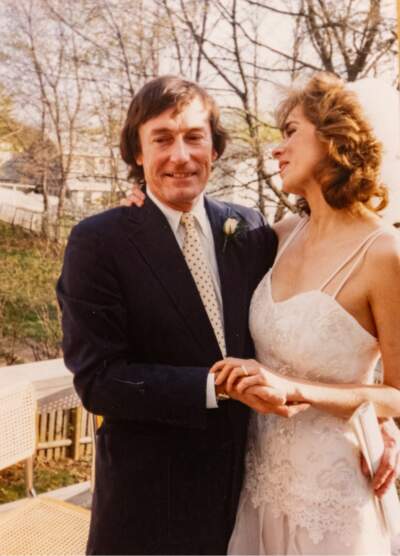
That was not to be.
In 15 months, he was gone.
So how did we spend this pause before death?
I pulled back on my work assignments, telling friends and colleagues that whatever time was left, I planned to be at Jack’s side, to do whatever he wanted. To my surprise, Jack had no bucket list. He spent his final days much the same way he spent most days in our 34-year relationship: reading, writing, collecting recipes, gardening and planning ahead.
It was my life that changed.
Though we had considered ourselves equal partners in our thoroughly modern, blended family, there was, in our marriage, an unspoken separation of duties. I was up early to the office and out late — a self-described workaholic. Whether dining with clients or working the room at events, I never tired of participating in the civic and social life of my city.
He, the one with the rich life of the mind, preferred cooking dinners for the kids, nursing his dozens of roses in our garden and managing the various vendors necessary to keep our big, old house from falling into disrepair.
In the final months of his life, I, by necessity, took on tasks previously unexplored. I became a gardener-in- training, learning, among other lessons, that the best method to de-head roses is to cut after the three leaves, but before the five. I became a property-manager-in-training, absorbing such wisdom as the difference between the boiler, the furnace and the HVAC unit.
I also became reacquainted with the stove and the oven. Jack, at long last, shared the secret of the family-favorite pesto which earned him the title, Pesto Prince — from none other than Julia Child.
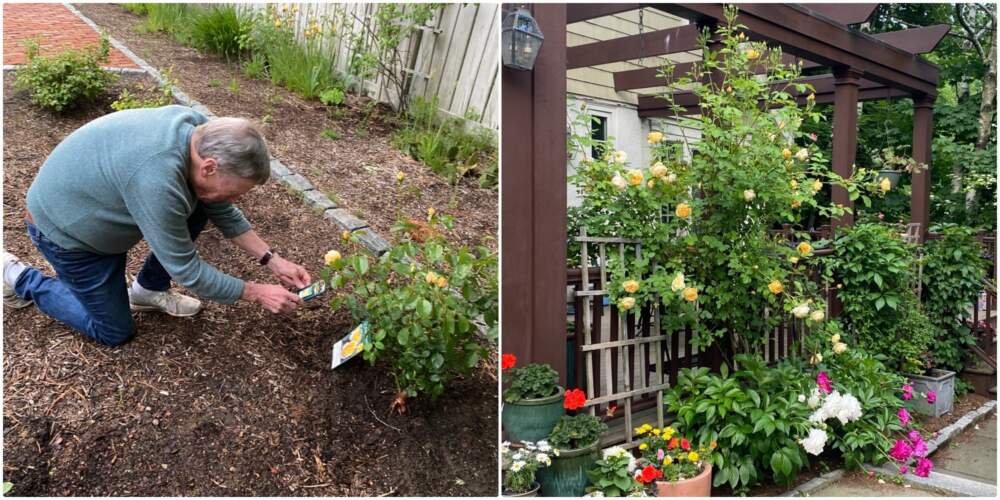
There was a time — in the hard years of marriage, when money was tight and obligations many — that I thought my husband was too set in his ways of quietude, preferring his books, computer and television to attending the events and functions that fueled my energy and nurtured my business. We argued as couples do. In that verbal shadowboxing, I rarely prevailed. Occasionally, though, I would have him on the ropes with a salient point or two. How did I know? Jack would begin to correct my grammar.
Where we had complete compatibility was in our family. Our values were in alignment around the importance of education and service. At our family table, we encouraged questions, celebrated curiosity and demanded that our children always do their best, whether in academics or sports.
We could spend hours looking through photographs of the kids, re-examining their report cards, talking about their lives. During the months of Jack’s cancer treatment, scrolling through photos became a more frequent and precious pastime. Oh, look, there’s Faith on the basketball court playing one on one with her sister, Jennifer. And, wasn’t John Patrick the most adorable little boy when he covered his face with shaving cream pretending to be his dad?
The children, now adults, visited us more frequently. At the end of one particular visit, our son who lives in Washington D.C., said to his father, “My heart is not big enough to hold all the love I have for you.”
Jack replied softly, “Lucky me.”
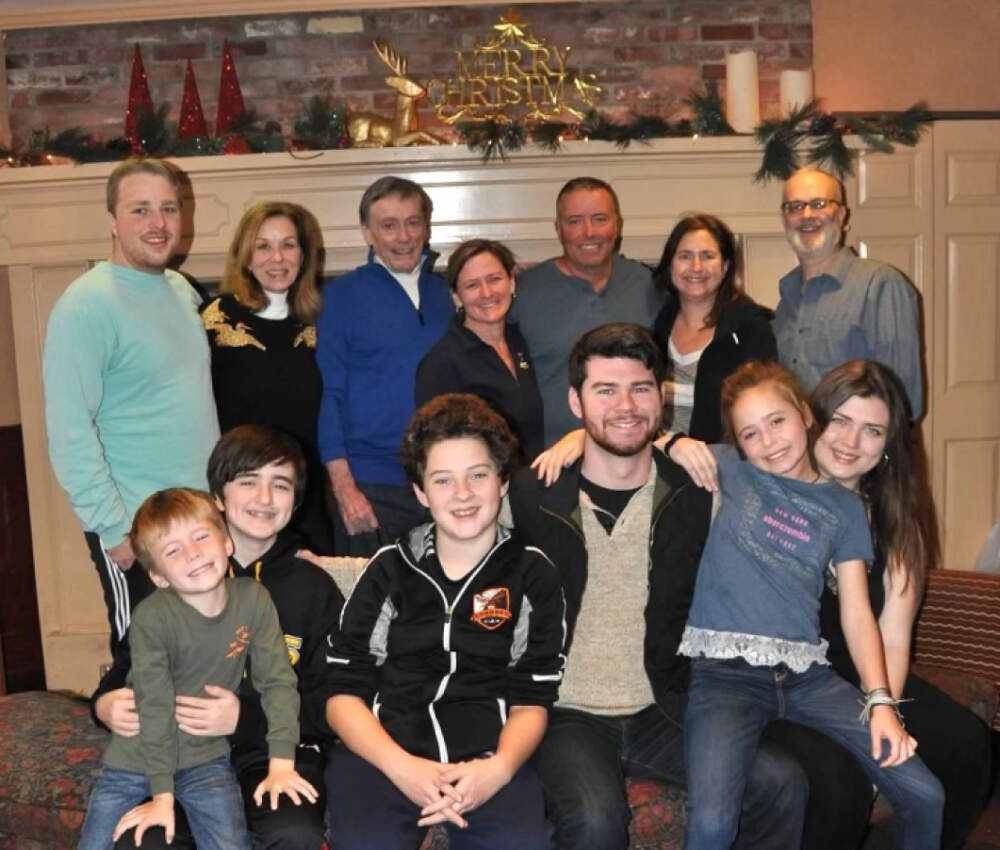
I coped with the role of caregiver by meditating each morning, keeping my focus on the day ahead and taking note of aspects of life for which I was grateful. I found myself, to my own amazement, appreciating the simple pleasures of gardening, taking joy in the completion of household projects and being at home to watch the evening news together.
The illness drained Jack of his physical energy, but he always remained clear of mind. “I have so many ideas,” he said, some of which were ways to make our Cambridge home more welcoming. When he was no longer able to move heavy pots around in the yard, he designed a new and final garden in the front of the house, and worked with a friend who did the planting.
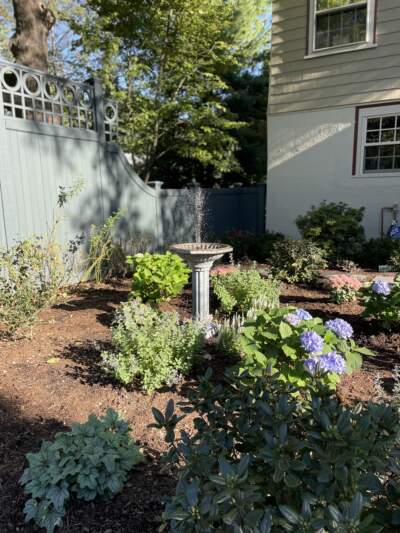
We avoided talk of death. I reasoned that doing so would take away from my appreciation of the present moment. Relying on his adherence to the philosophy of the stoics who suggest we accept what we can’t control, Jack didn’t broach the subject either, though his always tender notes to me became, over time, more poignant.
Six months into his diagnosis, at Christmas, Jack wrote, “Without you? Perish the thought…. In the end, I don’t wonder what I’d be without you. I just want to spend every day that I have left with you. And, forever after that, I shall be at your side and my goal, as ever, is to protect you and love you, dear Geraldine.”
If there is such a thing as an unexpected death when in treatment for terminal cancer, Jack’s was.
As a result, truth broke in late.
It was only a few weeks before he died that we discussed burial and the question of the grave marker. Soon I was on the phone with the stone carver, Karin Sprague, a woman who referred to her work as a sacred calling. Radiating warmth and compassion, she gently described the process of creating this enduring work of art.
When the call ended, I went to Jack’s side and began a conversation rich in meaning. I talked about birds as symbols of the spirit, and how they had given us countless hours of pleasure as they scampered through the garden. I suggested a design that included both bird and flower.
He agreed, though wondered if there should be a word of description under his name as well. “Yes,” I said, “a man of words needs something under his name.”
As a newspaperman, Jack held many titles: reporter, editor, columnist, TV critic, ombudsman. But the title he valued most, and the word he selected to be carved into the stone, is “writer.”
In his writing, Jack once pondered whether the intensity of a final illness clarifies anything.
For me, living, loving and caring for Jack in the twilight of his life clarified everything.

This segment aired on September 22, 2023.
